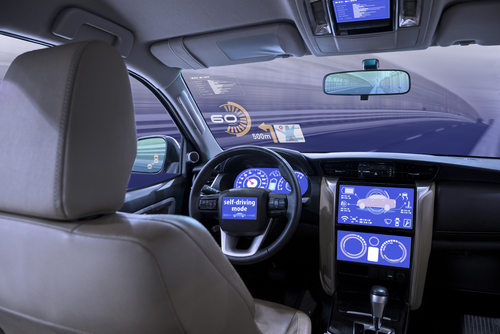Personal Injury Solicitors in Slip and Fall Claims
In 2018 the Centre for Connected and Autonomous Vehicles (CCAV) asked the Law Commission to undertake a review to enable the safe and responsible introduction of automated vehicles on roads and public places.
Written by
Ashwood Solicitors
Published on
12/10/2022

The report contains a series of recommendations which deal with issues such as the initial approval and authorisation of self-driving vehicles, ongoing monitoring of their performance while they are on the road, but most importantly criminal and civil liability.
There is a need for writing the test for self-driving into law, with a clear distinction between the concept of a self-driving vehicle and a vehicle with driver-assist features. So, if the car in question possesses some driver-assist feature, it won’t be classed as self-driving. It will be a yes or no classification. If monitoring is required, by the human driver i.e., if weather conditions are bad, then it will no longer be regarded as autonomous.
It follows that the person sitting in a self-driving vehicle would therefore be seen as a “user in charge”, with different legal responsibilities from a “conventional” driver. New legal roles for users, manufacturers and service operators must be established, with removal of criminal responsibility for the person in the passenger seat.
The Automated and Electric Vehicles Act 2018 currently governs the issue of liability. Broadly speaking, each listed automatic vehicle must carry insurance binding an insurer to pay compensation for any damage caused by a vehicle while it is driving itself. The law is governed by product liability in terms of negligence and strict liability. Negligence meaning that reasonable care must be exercised in designing products to be safe. Strict liability meaning that manufacturers will be held strictly liable for damages even when the manufacturer exercised all possible care to remove defect. This means that a Claimant would need to show whether the car failed to work as specified by the manufacturer.
The Law Commission also recommended that a user in charge will not be prosecuted for offences which arise from the driving task (i.e., what the autonomous car does) but they can still be prosecuted for the tasks which remain in control of the user in charge i.e., arranging insurance or checking seatbelt safety. In some instances, no user is needed in the driving seat and instead a licensed operator will be responsible for overseeing the journey.
Also, any data available to establish fault and liability following an accident must be made available and must be accessible. Sanctions will arise if carmakers fail to reveal this information. Manufacturers and service operators will be held criminally responsible for misrepresentation or non-disclosure of safety-relevant information.
The proposed shift in criminal liability from users of self-driving cars to the companies behind the cars could result in difficulties for claimants in road traffic injury claims. Presently the actions of the driver can be judged relatively simply by reference to previous cases to establish if they are at fault. Assessing whether the companies should be held liable could be far more complex and an uphill battle for claimants to prove.
For example
So whilst the theory is these vehicles are safer, and accidents will be reduced, in cases where there are accidents, seeking a remedy may not be so straightforward.
The consultation was praised for emphasising the importance of correct terminology identifying whether a car is self-driving or not as this will fully inform motorists of their liability. Companies will need to highlight legal obligations to perspective buyers in a way that has never had to be done before!
Recently, Tesla has faced controversy for exactly that – advertising their cars as self-driving when they clearly were not completely driverless.
The automated vehicles joint report has been laid before Parliament and the Scottish Parliament. The UK, Scottish and Welsh Governments will have to decide whether to accept these recommendations.
It is estimated that within the next year the UK will have its first interactions with self-driving cars, so laying the legal foundations like this is important.
Out of 980 reviews